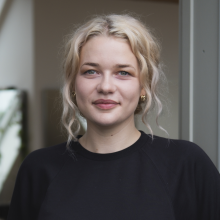Independent research group: Development of symmetrical mental models

The research group “Development of Symmetrical Mental Models,” led by Dr. Christian Schulz, investigates how people imagine artificial intelligence—and how these ideas can be incorporated into the design of explainable AI systems. The starting point is that mental models have mostly been designed from the developer's perspective, leaving little room for the views of real users and, above all, the people behind them.
The project therefore focuses on a new understanding: it builds on insights from media studies – such as the concept of the “algorithmic imaginary” – to develop inclusive and co-constructive mental models. In doing so, it traces and critically examines the historical lines of previous concepts of mental models, as well as analyzing concrete ideas of users in its own studies and ongoing TRR projects.
The aim is to rethink mental models not only on an individual level, but systematically under the premise of co-construction—as part of a multi-perspective and dynamically interrelated interplay between humans and AI.
Research Areas
Media studies
Former Members
Viktoria Fascher, Research associate
Publications
Social Context in Human-AI Interaction (HAI): A Theoretical Framework Based on Multi-Perspectival Imaginaries
A.L. Menne, C. Schulz, in: C. Stephanidis, M. Antona, S. Ntoa, G. Salvendy (Eds.), HCI International 2026 Posters: 28th International Conference on Human-Computer Interaction, HCI 2026, Montreal, Canada, July 26-31, 2026, Proceedings, Springer International Publishing, n.d.
Feeds. Ein zentrales Strukturprinzip sozialer Medien
C. Schulz, in: R. Dörre, A. Tuschling (Eds.), Handbuch Social Media: Geschichte – Kultur – Ästhetik, 1st ed., Metzler Verlag, Stuttgart, n.d.
On "Super Likes" and Algorithmic (In)Visibilities: Frictions Between Social and Economic Logics in the Context of Social Media Platforms
C. Schulz, Digital Culture & Society 2/2023 (2025) 45–68.
Vernakulärer Code oder die Geister, die der Algorithmus rief - digitale Schriftlichkeit im Kontext von sozialen Medienplattformen
C. Schulz, in: M. Bartelmus, A. Nebrig (Eds.), Digitale Schriftlichkeit – Progammieren, Prozessieren und Codieren von Schrift, 1st ed., transcript , Bielefeld, 2024.
Vom foto-sozialen Graph zum Story-Format: Über die Institutionalisierung sozialmedialer Infrastruktur aus dem Geiste der Fotografie
C. Schulz, in: A. Schürmann, K. Yacavone (Eds.), Die Fotografie und ihre Institutionen. Von der Lehrsammlung zum Bundesinstitut , 1st ed., Reimer Verlag, Berlin , 2024.
From mental models to algorithmic imaginaries to co-constructive mental models
C. Schulz, Navigationen – Zeitschrift Für Medien- Und Kulturwissenschaften 2 (2023) 65–75.
Tech/Imaginations – Introduction
C. Schulz, J. Schröter, Navigationen – Zeitschrift Für Medien- Und Kulturwissenschaften 2 (2023) 7–14.
Tech/Imaginations
C. Schulz, J. Schröter, C. Ernst, eds., Tech/Imaginations, Universi Verlag , 2023.
The Return of Black Box Theory in Explainable AI
F. Beer, C. Schulz, in: 4S Conference (Society for the Social Studies of Science), Honolulu/Hawaii, November 9, n.d.
Show all publications


